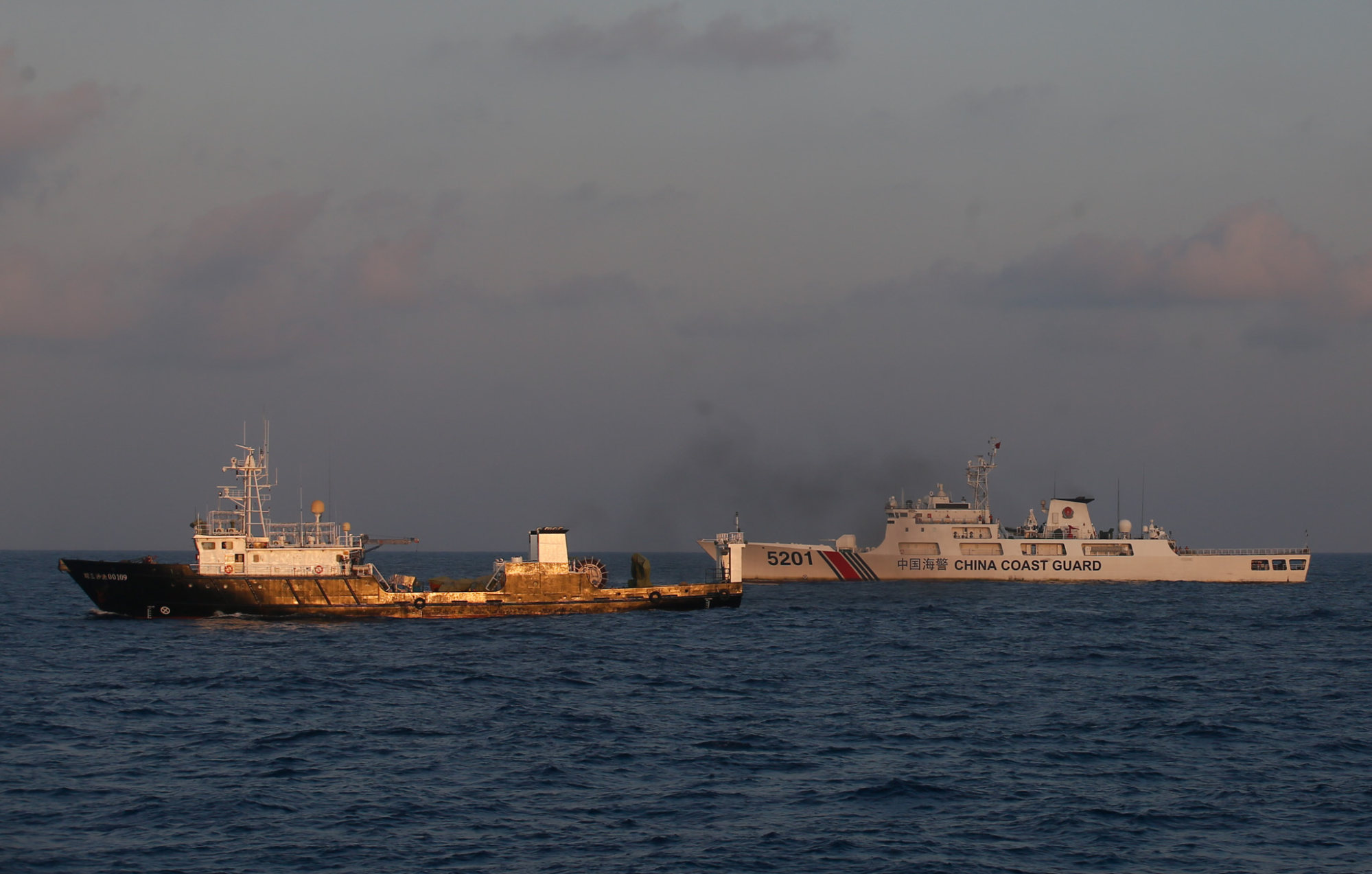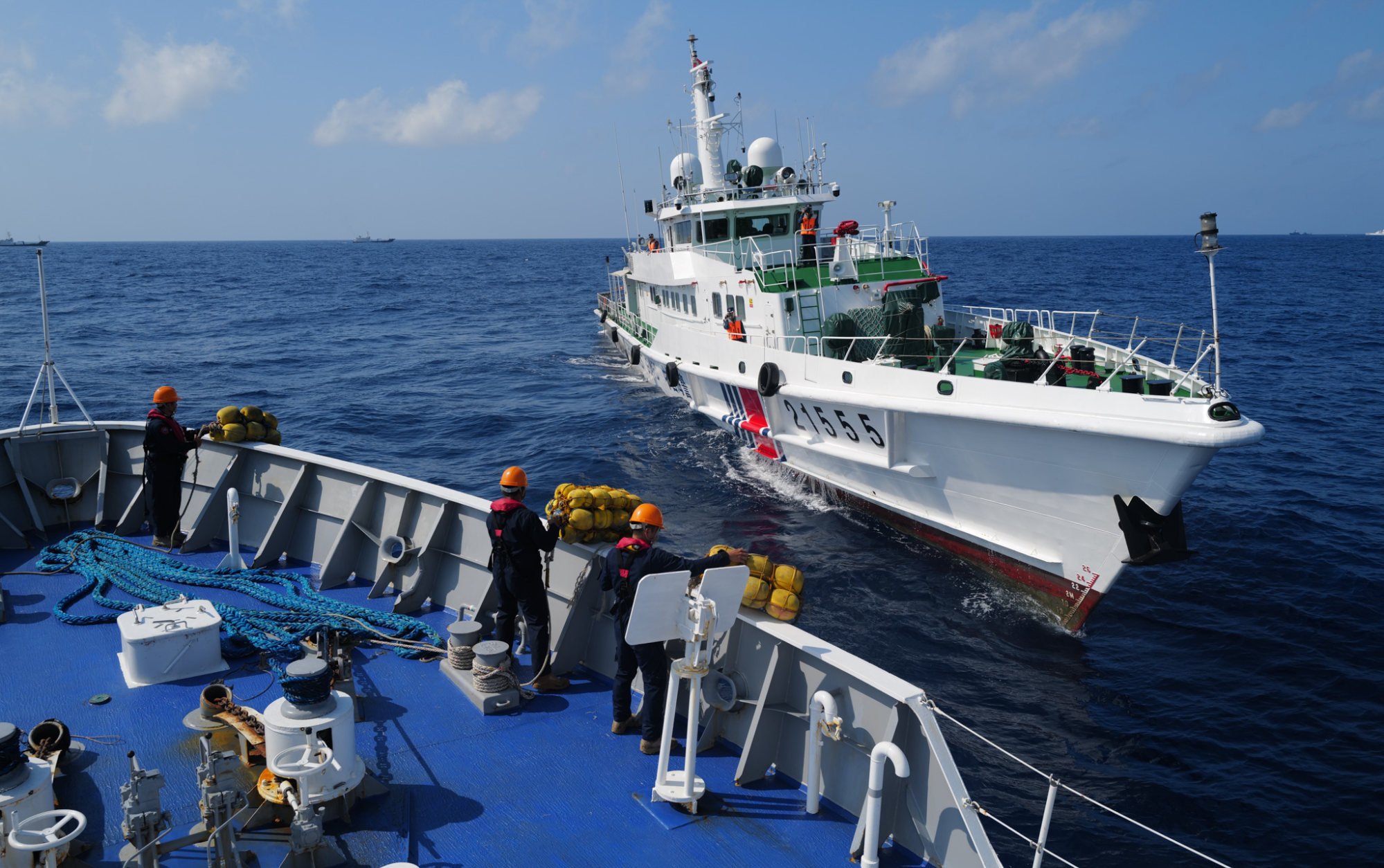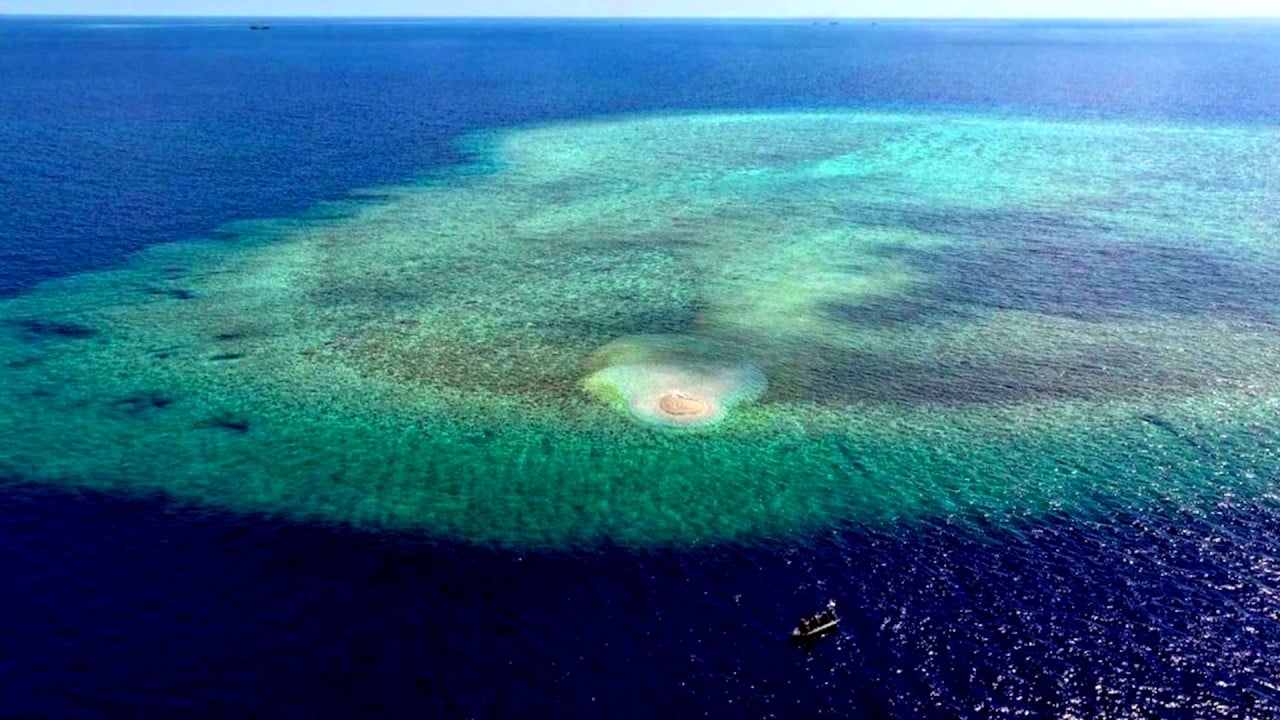The situation at the Sabina Shoal mirrors recent events at Sandy Cay near Pag-asa Island in the West Philippine Sea, where coral reefs were severely damaged due to the actions of Chinese fishermen and debris was strewn throughout the area, according to Philippine authorities.
The West Philippine Sea is Manila’s term for the section of the South China Sea that encompasses its maritime territory, including its exclusive economic zone.

The idea of filing a complaint against China started in September 2023 when Justice Secretary Jesus Crispin Remulla learned from the Philippine military about massive coral harvesting at the Rozul Reef seabed, another feature within the Philippines’ internationally recognised exclusive economic zone. Remulla said then that Manila might file legal action against Beijing in 2024.
The Rozul reefs are near the island of Palawan, a southwestern Philippine island bordering the disputed waters.
In 2016, the Permanent Court of Arbitration at The Hague ruled in favour of the Philippines on a case regarding territorial rights in the South China Sea, dismissing China’s claims to the disputed waters as delineated by its so-called nine-dash line.
China rejected the ruling as illegitimate and continues to assert its territorial claims, leading to numerous clashes with Philippine forces.
Attorney Aldrin Alba, a legal expert at the Political Economic Elemental Researchers and Strategists think tank, told This Week in Asia that China could have violated the Philippine law if it had used any fishing method that destroyed coral reefs and other marine life within Manila’s exclusive economic zone.
He said Beijing could also have violated a law prohibiting any party from gathering, selling or exporting white sand or other substances that make up any marine habitat.
Parties found guilty of violating these provisions face jail of between two and 10 years and fines ranging from 100,000 Philippine pesos (US$1,707) to 500,000 pesos.
Filing such a complaint could worsen the already strained relationship between the Philippines and China, Alba said, noting that Beijing would perceive the case as an affront to its reputation and could retaliate against Manila with diplomatic pressure or other countermeasures involving trade and investment.
“The Philippines needs to be cautious to prevent any escalation of the tension with China. The filing of such a case would surely draw international attention, and countries with an interest in the West Philippine Sea would closely monitor the proceedings,” he added.
China will ignore complaint
Tran Thi Mong Tuyen, an analyst at National Cheng Kung University, told This Week in Asia that if the Philippines were to win, it could demand significant compensation for the damage.
Based on an estimate by the University of the Philippines’ Marine Science Institute, the country is losing around 33.1 billion Philippine pesos (US$565 million) annually from damaged reef ecosystems due to China’s reclamation activities.
In 2015, the US compensated the Philippines US$1.97 million for damage inflicted byits USS Guardian navy vessel on the Tubbataha Reef Natural Park in the Sulu Sea, a Unesco World Heritage Site.
“However, filing a lawsuit is not simple, and even if China is ordered to pay compensation, whether it would comply is another matter,” Tuyen said.

If Manila were to file a case before the ICJ against China, Beijing might not recognise the court’s jurisdiction, Tuyen said.
Tuyen suggested that instead of the ICJ, the Philippines could pursue another lawsuit against China through the PCA, focusing on environmental damage rather than disputed territories, as the outcome could be more enforceable.
Political analyst Sherwin Ona, an associate professor of political science at De La Salle University in Manila, said such a move before the PCA would align with the Philippine position of abiding by the the United Nations Convention on the Law of the Sea (Unclos).
“I think this (the PCA) will be the venue where the Philippines would file the complaint. More importantly, Manila is right in highlighting this case not only as an issue of sovereignty” but also as a maritime economy issue, Ona said.
If Manila were to file the complaint, it would be a big blow to China in the court of public opinion, Ona said.
“This clearly shows that China is not only a maritime bully but an irresponsible environmental actor. Even as it claims the whole South China Sea, it does not possess the sense of stewardship since it does not respect the environment.”


